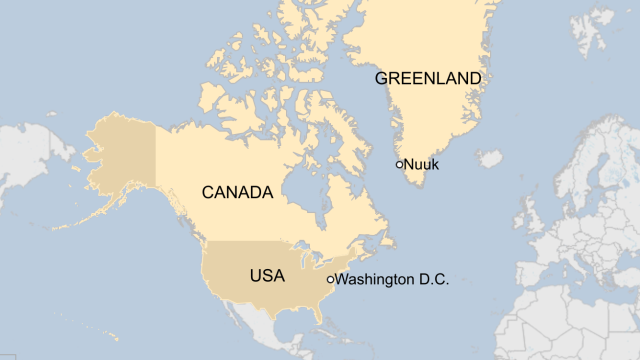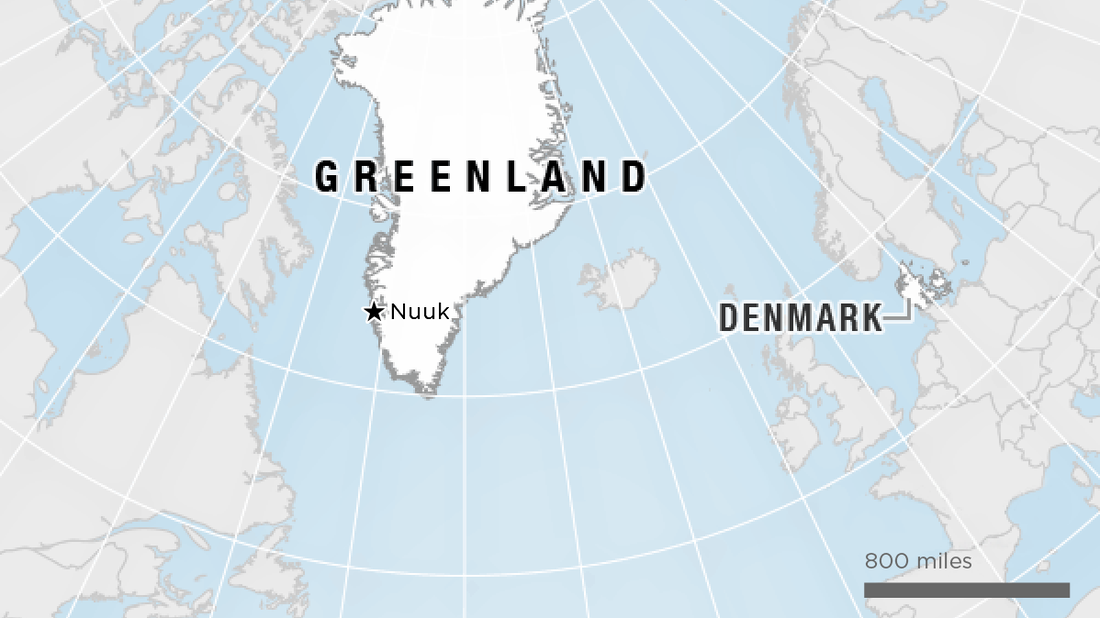Greenland, the world’s largest island and a strategically significant territory, has once again become the focus of international attention as Denmark announces a significant boost in defence spending.
This move follows repeated calls by former US President Donald Trump to acquire the Arctic territory, reigniting discussions around Greenland’s geopolitical importance and sovereignty.
Greenland’s Strategic Significance
Greenland, an autonomous Danish territory, holds immense geopolitical and economic value. Its location between North America and Europe places it on the shortest air and sea routes connecting the continents, making it a vital asset for navigation and military strategy.
Furthermore, Greenland is rich in natural resources, including rare minerals, which have drawn interest from global powers like the United States, China, and Russia.
The US has long recognized Greenland’s strategic importance, exemplified by the presence of Thule Air Base, a crucial facility for missile defense and space surveillance.
Read : Greenland Is Not for Sale: Country Leaders in Response to Donald Trump
Trump’s assertion that ownership of Greenland is an “absolute necessity” for US national security highlights the island’s value in terms of military dominance and resource exploitation.
Denmark’s Defence Package: A Renewed Arctic Focus
In response to Trump’s repeated claims and growing geopolitical competition in the Arctic, Denmark unveiled a defence package worth at least $1.5 billion (12-15 billion Danish krone).
Danish Defence Minister Troels Lund Poulsen described the timing as an “irony of fate,” though analysts believe the package has been under discussion for years.
Read : Why Greenland is Considered the Most Beautiful Place on Earth
The funding aims to bolster Denmark’s military presence and operational capacity in Greenland. Key components of the package include:
- Two new inspection ships to patrol Greenland’s waters.
- Two advanced long-range drones for surveillance.
- Additional dog sled teams, emphasizing Greenland’s traditional methods in Arctic operations.
- Increased staffing at the Arctic Command headquarters in Nuuk.
- Upgrades to one of Greenland’s three civilian airports to accommodate F-35 fighter jets.
These measures signify Denmark’s commitment to protecting Greenland’s waters and ensuring its sovereignty, especially against potential encroachments by other nations like Russia and China.
Implications of US-Greenland Relations
Trump’s revived interest in Greenland underscores a broader US strategy to strengthen its influence in the Arctic. The suggestion of purchasing Greenland, initially floated in 2019, faced widespread criticism and was deemed “absurd” by Danish Prime Minister Mette Fredericksen. Despite the backlash, Trump’s rhetoric has brought renewed attention to Arctic geopolitics.

Greenland’s Prime Minister Mute Egede reiterated that the territory is not for sale but emphasized the need for continued cooperation and trade, particularly with neighboring nations. This balanced stance reflects Greenland’s desire to maintain autonomy while benefiting from international partnerships.
For Denmark, the increased defence spending is a clear signal of its intent to safeguard Greenland against external pressures. However, it also highlights a reactive approach to US demands.
Analysts like Army Maj Steen Kjaergaard suggest that Trump’s comments may have strategically pressured Denmark into prioritizing its Arctic military capabilities without the US needing to take direct control of Greenland.
Historical Context and Future Challenges
The idea of the US acquiring Greenland is not new. It dates back to the 1860s during Andrew Johnson’s presidency and resurfaced periodically throughout history. While these proposals have never materialized, they reflect the island’s enduring strategic importance.
Denmark’s latest defence measures mark a significant shift in its Arctic policy, acknowledging the growing complexities of the region’s geopolitics. As climate change opens new shipping routes and access to resources, the Arctic is becoming a focal point of global competition.

For Greenland, these developments pose both opportunities and challenges. The island’s rich resources and strategic location make it an attractive partner for powerful nations. However, balancing economic growth, environmental sustainability, and political autonomy will require careful navigation in the years ahead.
Denmark’s increased defence spending for Greenland underscores the island’s critical role in Arctic geopolitics. While Trump’s renewed calls to purchase Greenland have drawn international attention, they have also spurred Denmark to take decisive steps to protect its territory.
As the Arctic continues to gain prominence on the global stage, the interplay between sovereignty, security, and international cooperation will shape the future of Greenland and the broader region.

